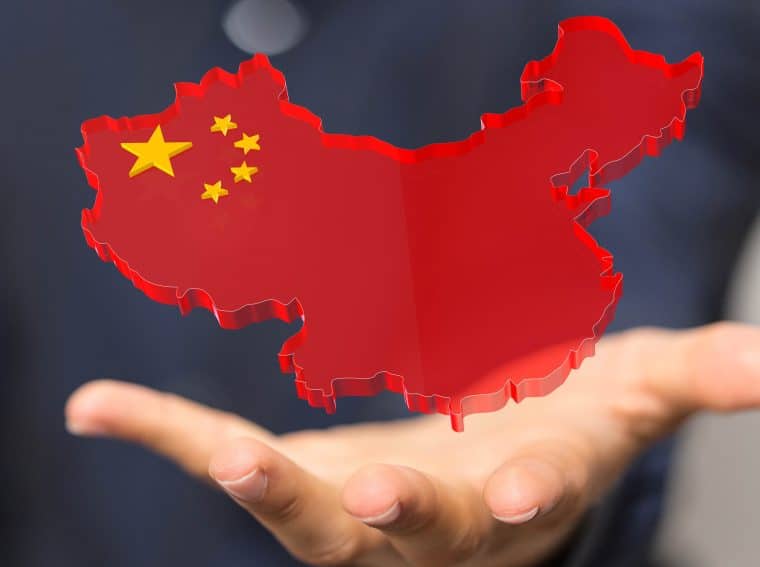A research-based report by the Australian Strategic Policy Institute (ASPI) has revealed that the People’s Republic of China (PRC) is emerging as a global leader in a wide range of technologies.
They include robotics, energy, defense, space, artificial intelligence, and biotechnology to mention a few.
The ASPI study, funded by the United States State Department, shows that China comes at the helm with 37 out of a total of 44 emerging technologies, including space and quantum technology.
Researchers considered data from the world’s most-cited scientific journals, especially those that have a higher probability of leading to patents.
The US and other western democracies are slowly “losing the global technological competition,” with diminishing “scientific research breakthroughs.”
Intriguingly, this research found out China is now home to the world’s top ten research institutions.
China beats the US and Western countries despite the world’s biggest economy clinching the highest positions in vaccines, quantum computing, small satellites as well as high-performance computing.
How Can US and Western Democracies Catch Up With China
As expected, the ASPI report recommended various ways in which the US and the West can grow the research in emerging technologies to catch up with China.
The study calls on Western democracies to prioritize collaborations through the creation of robust supply chains to respond to China’s “stunning lead in high-impact research.”
The critical tech tracker from @ASPI_org reveals China has built the foundations to position itself as the world’s leading science and technology superpower.
https://t.co/LimWJsWsXF
1/10 pic.twitter.com/UxwA7G7612— Dr Jamie Gaida (he/him) (@Jamie_Gaida) March 2, 2023
ASPI is one of the leading global institutions dedicated to reporting on developments from China – for this reason, it has often come under targeted attacks from the biggest economy in Asia.
“This institute has long been receiving funds from the US government and… is so imbued in ideological prejudice that it becomes an anti-China ‘vanguard’, which leads to serious doubt on its academic integrity,” a Chinese Foreign Ministry spokesman said about the institute in 2020.
China’s Dominance In Hypersonic Missiles
China’s lead in defense systems and technologies is reflected by the progress made in the area of hypersonic missiles. According to the report, China is responsible for almost 50% of the advanced aircraft engine research papers with significant impact – which includes the study of hypersonics – within the past five years.
Furthermore, seven of the top 10 institutions globally that are researching this topic are located in China. United States agencies were left in shock when a report surfaced on the milestone China had made “in nuclear-capable hypersonic missiles” in August 2021.
US intelligence reckoned at the time that Beijing’s groundbreaking progress in hypersonic missiles could have been flagged if they had gotten wind of the research.
The ASPI report also raised concerns over the danger of one country achieving a knowledge monopoly in key areas of emerging technologies.
China is on a path that could see it become a knowledge monopoly in ten key fields such as synthetic biology.
That’s not all, Beijing also accounts for one-third of the world’s research in synthetic biology in addition to other critical areas like electric batteries, nanomanufacturing, and 5G.
The ASPI study shows the US and Western democracies have many reasons to be worried if they plan to counter China’s progress in the area of emerging technologies, as the Chinese Academy of Sciences (CASS) emerged in first or second positions in almost all of the 44 technologies monitored.
If that is not worrying enough, the report reckoned that China’s growing dominance in areas such as photonic sensors and quantum communication could see it “going dark” – in other words Beijing could avoid detection by Western surveillance systems.
How Is China Able To Fast-Track Its Advancement In Emerging Technologies
China relies heavily on imported knowledge, in other words, its researchers are learning in overseas institutions.
According to the report, a whopping one-fifth of all top Chinese researchers have been educated in what ASPI terms a “five eyes” nation.
The US and Western countries should consider the heightened screening of visa applications to cut down on illegal technology transfers while keeping the ultimate focus on promoting international cohesiveness and security.
Related
What's the Best Crypto to Buy Now?
- B2C Listed the Top Rated Cryptocurrencies for 2023
- Get Early Access to Presales & Private Sales
- KYC Verified & Audited, Public Teams
- Most Voted for Tokens on CoinSniper
- Upcoming Listings on Exchanges, NFT Drops
